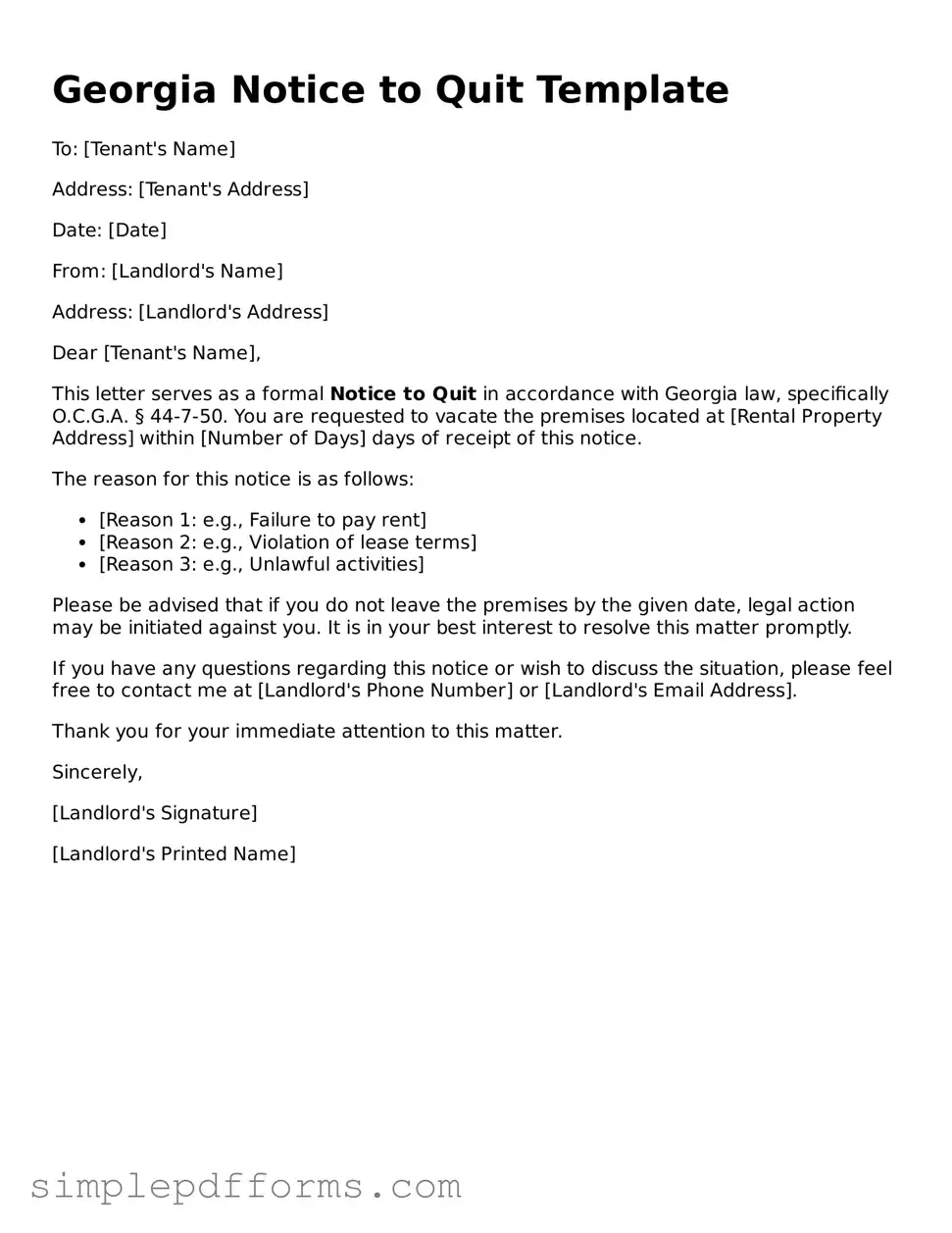Attorney-Verified Notice to Quit Document for Georgia State
The Georgia Notice to Quit form is a legal document used by landlords to inform tenants of their intention to terminate a lease agreement. This form outlines the reasons for eviction and provides a timeline for the tenant to vacate the property. Understanding this form is crucial for both landlords and tenants to ensure compliance with state laws.
Open Notice to Quit Editor Now

Attorney-Verified Notice to Quit Document for Georgia State
Open Notice to Quit Editor Now

Open Notice to Quit Editor Now
or
Get Notice to Quit PDF Form
Your form is waiting for completion
Complete Notice to Quit online in minutes with ease.